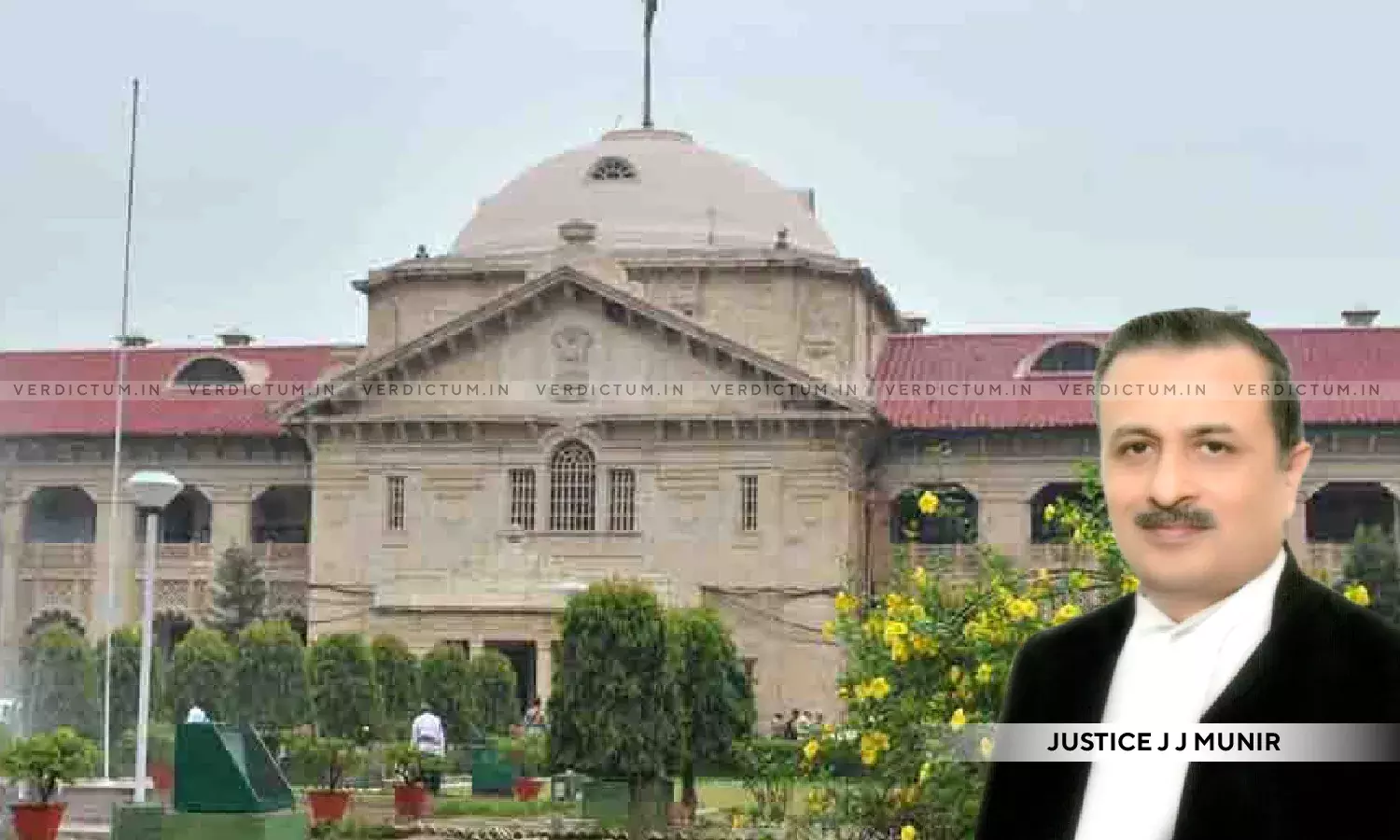In No Event, Transfer Order Can Be Interfered With On Ground Of Infraction Of State's Transfer Policy: Allahabad High Court

The Allahabad High Court has held that transfer orders cannot be challenged solely on the grounds of violation of the State's transfer policy as State policies are administrative in nature and are distinguishable from statutory laws made by the legislature.
Justice J.J. Munir noted that since there is no violation of any statutory rule, the Court cannot interfere with the transfer order.
In this case, Petitioner who was a Senior Auditor challenged his transfer order from the establishment of the Director, Cooperative Societies and Panchayat Audit in Lucknow, U.P. The transfer order had been passed in public interest.
The petitioner's argument was based on the fact that his wife, who is an Assistant Teacher in a Government Primary School, has also been recently transferred to a different location in accordance with the service rules and transfer policy applicable to her employer.
Advocate Lavlesh Kumar Shukla appeared for the Petitioner and Advocate Roopesh Tiwari (C.S.C.) appeared for the Respondents.
The Counsel for the petitioner claimed that the transfer order violated the transfer policy that attempts to post spouses at the same station when both are government employees. It was argued that the transfer was arbitrary, punitive, and a result of pick and choose policy by the authorities. However, the Standing Counsel for the respondents contended that transfer is an exigency of service, and the court's interference was permissible only in cases of malafide intentions or violation of statutory rules, not transfer policies.
The Court, after hearing both parties, concluded that the law is well-settled that transfer orders can be interfered with only if they were actuated by malafides in fact or malafides in law. Moreover, the Court stated that interference can also happen if the transfer order breaches a statutory rule.
“Transfer is indeed an exigency of service and interference by this Court in exercise of our writ jurisdiction under Article 226 of the Constitution of India is permissible only in the event that the transfer is actuated by malafides in fact or is vitiated by malafides in law. Still, there is one more avenue, where this Court can interfere with a transfer order, and, that is where the transfer order is in breach of a statutory rule. However, in no event a transfer order can be interfered with on the ground of infraction of the State's transfer policy.”
However, the Court held that transfer orders cannot be challenged solely on the grounds of violation of the State's transfer policy, as held in the decision of Mrs. Shilpi Bose and others v. State of Bihar and others, AIR 1991 SC 532.
Accordingly, the Court disposed of the Petition.
Cause Title: Amit Kumar v. State of U.P. & Ors.
Click here to read/download Order


